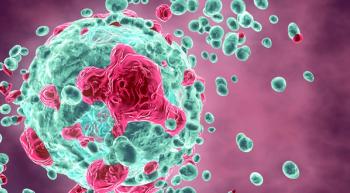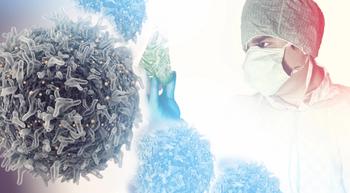
A two-time cancer survivor explores her thoughts on aging.

A two-time cancer survivor explores her thoughts on aging.

In this week’s episode of the “CURE Talks Cancer” podcast, we spoke with a skin cancer survivor who has dealt with many recurrences over the last 30 years and tells others to “listen to your mother” and protect your skin from the sun.

Cancer can switch you to a different track but does not necessarily derail you, says a two-time cancer survivor.

Nine years out from breast cancer and four years out from her melanoma, this cancer survivor still combats her fatigue.

There I was with my freshly darkened skin in the mirror (after a beautiful day out in the sun). What was I thinking? Oh yeah, I wasn’t thinking.

In this week’s episode of the “CURE Talks Cancer” podcast, we spoke with a melanoma survivor about the importance of community and human connection to build hope after a cancer diagnosis.

From hereditary cancer risk among twins to study findings in squamous cell carcinoma, here’s what is making headlines in the cancer space this week.


Figuring out whether to take targeted drugs or immunotherapy can be challenging for patients with metastatic melanoma that expresses a BRAF gene mutation, but there are rules of thumb that can help.

In this week’s episode of “CURE Talks Cancer,” we spoke with a melanoma survivor who wishes she knew at diagnosis what her cancer journey would do for her – not to her.

A nine-year breast cancer survivor and five-year melanoma survivor shares her thoughts on cancer survivorship with a side of mid-life crisis.

In a talk to people affected by melanoma, Michael McGrady described reassessing his values after cancer and how it changed the course of his life.

Following surgery with medication, combining immunotherapies or targeted drugs and adding radiation to immunotherapy can improve effectiveness in treating various stages of melanoma.

With greater longevity for survivors of melanoma comes the need to treat lingering side effects and monitor for cancer recurrences.

Immunotherapy may be giving hope to people living with rare skin cancer.

The Food and Drug Administration (FDA) approved Keytruda (pembrolizumab) – an immunotherapy agent – for the treatment of patients with resected, high-risk, stage 3 melanoma.

Here are tips for fellow cancer survivors to clear out cancer paraphernailia but keep important medical records.

Two-time cancer survivor suggests a careful approach when researching your own cancer.

A web-based intervention may help reduce harmful UV exposure and skin cancer risk in young adults, according to recent research.

The Food and Drug Administration (FDA) granted accelerated approval to Keytruda (pembrolizumab) for the treatment of adult and pediatric patients with recurrent locally advanced or metastatic Merkel cell carcinoma, according to the agency.

Young patients diagnosed with posterior uveal melanoma may have similar, if not worse, prognoses compared with the overall patient population.

Patients with BRAF wild-type advanced melanoma saw a survival benefit after treatment with Opdivo (nivolumab) compared with the chemotherapy agent dacarbazine.

The combination use of two immunotherapy agents in the first-line setting helped patients with advanced melanoma live longer compared with treatment with either drug alone.

To combat the psychological effects from a lymphedema diagnosis, patients need to be equipped with the knowledge and understanding of what the condition is and how it is treated.

A genetic counselor discussed the various hereditary breast and ovarian cancer syndrome-associated cancers among men and how to manage them at the FORCE Annual Meeting.